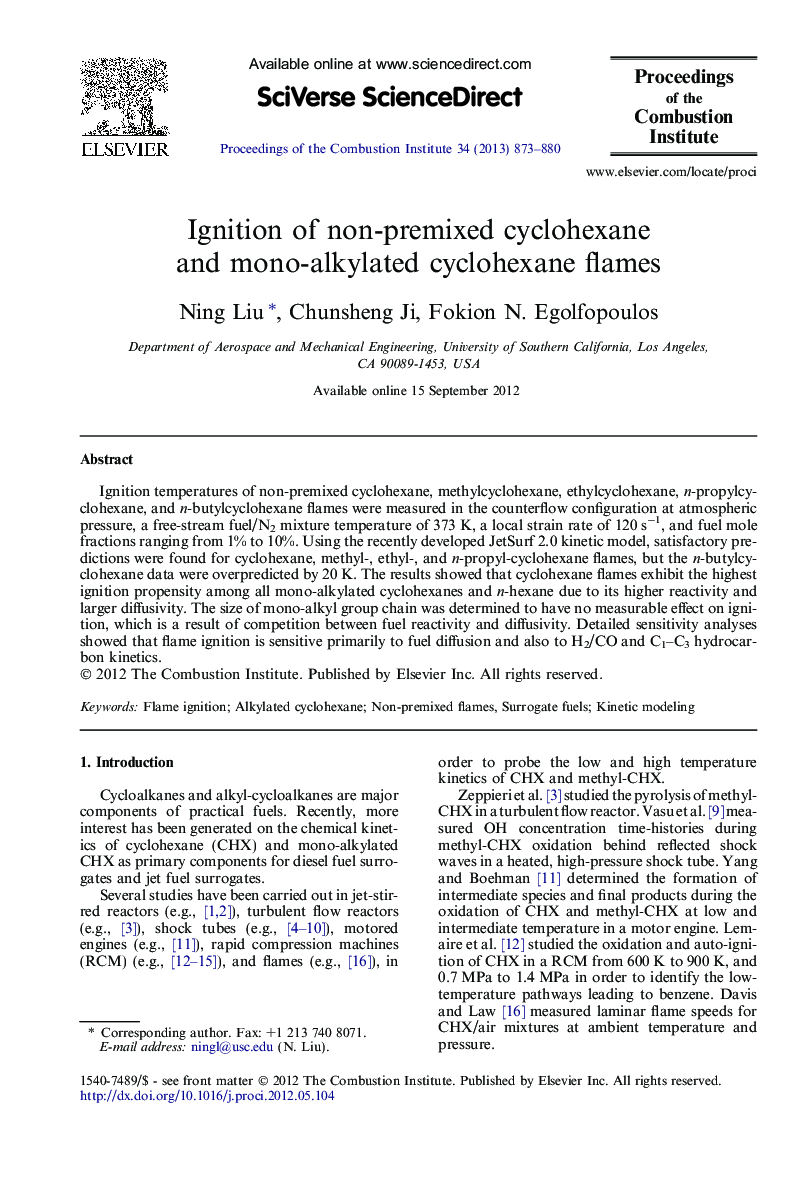| Article ID | Journal | Published Year | Pages | File Type |
|---|---|---|---|---|
| 241194 | Proceedings of the Combustion Institute | 2013 | 8 Pages |
Ignition temperatures of non-premixed cyclohexane, methylcyclohexane, ethylcyclohexane, n-propylcyclohexane, and n-butylcyclohexane flames were measured in the counterflow configuration at atmospheric pressure, a free-stream fuel/N2 mixture temperature of 373 K, a local strain rate of 120 s−1, and fuel mole fractions ranging from 1% to 10%. Using the recently developed JetSurf 2.0 kinetic model, satisfactory predictions were found for cyclohexane, methyl-, ethyl-, and n-propyl-cyclohexane flames, but the n-butylcyclohexane data were overpredicted by 20 K. The results showed that cyclohexane flames exhibit the highest ignition propensity among all mono-alkylated cyclohexanes and n-hexane due to its higher reactivity and larger diffusivity. The size of mono-alkyl group chain was determined to have no measurable effect on ignition, which is a result of competition between fuel reactivity and diffusivity. Detailed sensitivity analyses showed that flame ignition is sensitive primarily to fuel diffusion and also to H2/CO and C1–C3 hydrocarbon kinetics.
